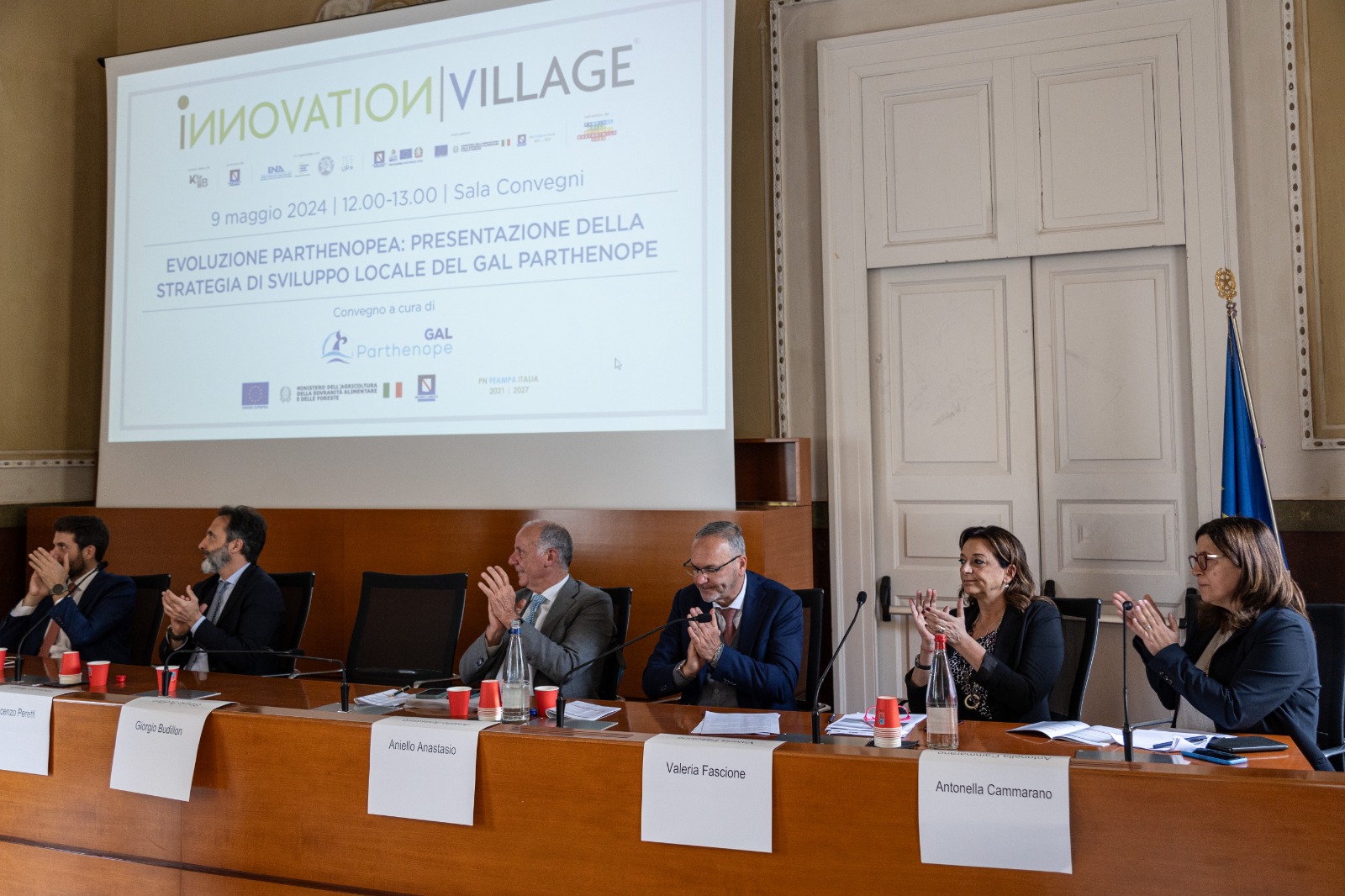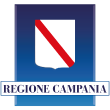The ninth edition of Innovation Village closes on Europe Day.
There was a great deal of participation and many topics addressed at the event on innovation created by Knowledge for Business and supported by the Campania Region and organised in collaboration with ENEA, Sviluppo Campania and other partners, including the Universities of Campania, the CNR, high-tech districts, professional associations and companies.
Fil rouge of the event, the Campania Region’s Smart Specialisation Strategy and its continuous updating, through dialogue with innovation players. Discussion unfolded between the presentations and workshops that animated the two days at Villa Doria d’Angri in Naples.
Bioeconomy, Aerospace, Quantum tech, Deep Learning and new materials, the key sectors. Transversality and Sustainability are the keywords.
“Innovations change the way of thinking and defining Ecosystems and accelerate the transversality between the areas of specialization identified by the RIS3 of Campania” – thus Valeria Fascione, Regional Councillor for Research, Innovation and Startup – which, with the introduction of new technologies, sees new frontiers on which to work.
“A projection that represents our present more than our future. As the reprogramming that will take into account this comparison with the territory must take place in a very short time” – commented Roberta Esposito, head of staff TA Adg PR FESR Regione Campania that at Innovation village has brought the contribution of RIS3 Campania to research and innovation.
Among the companies involved in the process of updating the Intelligent Specialization Strategy of the Campania Region present at Innovation Village, the Medaarch design company active in design and architecture, specialising in innovative and sustainable processes and technologies. “We are pleased to see how the topics that we brought to the table’s attention can be found on this year’s working tables,” he says. Hamlet Picerno Ceraso which finds the format very concrete and useful to give impetus to all those who will be the development projects of the Campania Region.
To sum up the key words of the event, on the sidelines of the presentation of the sixth edition of the Innovation Village Award Oscar Amerighi of ENEA Recalling the aerospace excellence of the Campania Region, he spoke of the possibility of integrating recovery measures for materials used in materials with a view to circularity.
The regeneration of resources is also the key to Stefania De Pascale of the Agriculture Department of UNINA, It states that we should ‘practice circularity and make our production systems much more efficient, especially as agriculture will be called upon to feed a growing population’.
Improving the use of resources on our planet will also help support human life in extra-planetary exploration tomorrow. For now, the reverse is true, as he explained. Luigi Carrino, President of Campania Aerospace District, referring to projects that have become a reality, such as, for example, the one carried out with the winegrowers of Benevento and Avellino in order to make better use of water resources and combat plant diseases in a non-invasive and non-polluting manner, as well as those for the protection of internal regional railway lines.
In the field of transport, innovation has been complemented by regional society EAV which, as he explained Pasquale Rovito, will help radically improve services and security.
From the railway networks that connect places and people to the intellectual ones that allow the development of a new generation of companies. This is the aim of Fabbrica Italiana Innovazione, as he said. Mariangela Contursi, Director General of Spici, It offers concrete support in bringing out and organising skills to make innovative ideas successful on the market.
A challenge, that of the development of Campania, which must also take into account the increase in the economic gap that will occur between the areas of our country due to the impact of climate change. The South will be even more penalized, he said. Vincenza Faraco, Scientific Coordinator of the Circular Bioeconomy Task Force, University of Naples Federico II. For this reason, green-match activities will focus on marginal areas following the principles of the European Green Deal by practicing a multidisciplinary and integrated approach.
The NRRP missions will also contribute to a digital and green transition. To talk about it was Donatella Proto, Director-General of the MIMIT NRRP Implementation Mission Unit, which also recalled the commitment of measures to overcome the gender gap in entrepreneurship and promote technology transfer through centres such as Meditech. Multiregional Competence Centre, active in Apulia and Campania, established as a facilitator of the adoption of Industry 4.0 enabling technologies by SMEs and the Public Administration.
Angelo Giugliana, General Manager of Meditech, It pointed out that a network of more than 40 kilometres was made available in Naples to enable experiments in quantum cryptography. Deep Learning and Quantum Technology, on which the Campania Region, through the European cohesion policy is investing a lot, will be extremely important for the development of high-tech technologies.
If quantum technologies and deep learning make data processing faster, what remains to be changed is how we get the materials. ‘Not through extractive logics, but through generative logics’. This is the paradigm shift he is calling for. Paolo Netti, director IT@CRIB and UNINA teacher, according to which it is necessary to integrate the knowledge we have today to make industrial processes highly sustainable.
Concepts that Professor Luigi Vanvitelli of the University of Campania, Amedeo Lepore, co-author of the book ‘The evolution of the circular bioeconomy, an engine for industrial development in Italy and the Mezzogiorno’, presented at the Innovation Village, defined: permanent evolution and looking for a synthesis that can enable technological innovation based on products that will have a much longer life cycle.
So the challenge is to find those materials that respond to new technologies and new needs that the world has due to climate change. And that's what it's about. Materias, Early Stage Combined Accelerator for the start-up of start-ups based on innovative materials, sets itself the objective, as explained by the CEO Catherine the Better.
Three pillars of the bioeconomy, as you pointed out: Mario Bonaccorso, Director of Circular Economy Cluster SPRING, territorial regeneration, soil protection and interconnection between sectors. This is a very important element to consider as it makes it possible to reconcile industrial development and job creation with the protection of the environment and human and animal health. That is why a region like Campania, which has a strong sector and a strong capacity to do research, can be a lever to create industrial development.




